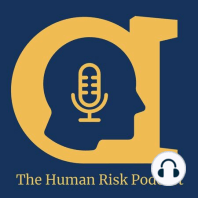22 min listen
Professor David Hess on Bad Compliance
ratings:
Length:
58 minutes
Released:
Dec 7, 2020
Format:
Podcast episode
Description
What happens when employees have little or no respect for their organization's Compliance Program? It's obviously bad, but how bad? That's what my guest on this episode Professor David Hess has researched. And the answer is 'really bad'; far from it simply being a case of wasted money and effort, it actually increases the likelihood of unethical behaviour. How this happens, and what we can do to prevent it, is what we discuss in this episode. David also shares some of his perspectives on Compliance and how the function can be more effective in delivering its mandate.David Hess is a Professor of Business Law and Business Ethics at the Ross School of Business at the University of Michigan. His research focuses primarily on the role of the law in ensuring corporate accountability. His publications in this area have analyzed the use of non-financial reporting by corporations; efforts to combat corruption in international business; the link between corruption and business and human rights; and the role of compliance and ethics programs in creating more ethical corporate cultures. To find out more about David's research visit his website: http://webuser.bus.umich.edu/dwhess/You can read David's article Chipping Away at Compliance: How Compliance Programs Lose Legitimacy and its Impact on Unethical Behavior here: https://brooklynworks.brooklaw.edu/bjcfcl/vol14/iss1/4/
Released:
Dec 7, 2020
Format:
Podcast episode
Titles in the series (100)
Human Risk Webinar Recording: The Ethics of Events during a Pandemic: In this impromptu episode, Richard Bistrong, Ruth Steinholtz and I discuss the Ethics of holding an in-person event at the time of a pandemic. The discussion arose because the three of us were due to attend an Ethics Conference together next month.... by The Human Risk Podcast
